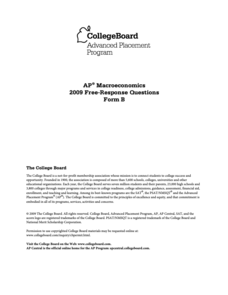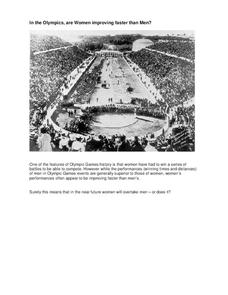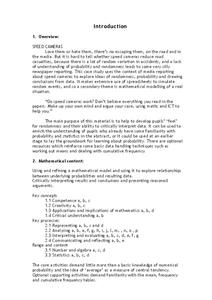National Endowment for the Humanities
Revolution '67, Lesson 2: What Happened in July 1967? How Do We Know?
Even in a world in which dozens of participants and curious onlookers record every controversial event, the basic facts of what happened are often in dispute. Revolution '67, Lesson 2 explores 1967 Newark, New Jersey using an examination...
College Board
2009 AP® Macroeconomics Free-Response Questions Form B
If a country is facing rising unemployment, should the president ride out the trend or decrease income taxes? Scholars confront two competing policy recommendations and must decide what to do in a practice exam from College Board. Other...
Bowland
In the Olympics, are Women Improving Faster than Men?
Will the time come when women outperform men at the Olympic Games?Scholars investigate gender differences in Olympic Games performances. They study the historical participation of women and then analyze data to determine if women will...
Serendip
Changing Biological Communities – Disturbance and Succession
After cutting down a forest to make a farm, how long would it take the environment to turn an abandoned farm back into a forest? Scholars study this exact scenario while they interpret many charts and graphs of the changing ecosystems as...
Bowland
Speed Cameras
Do speed cameras help reduce accidents? Scholars investigate this question using a series of spreadsheet activities. Along the way, they learn about randomness, probability, and statistical analysis.
Serendip
Where Does a Plant's Mass Come From?
Where does the mass for a growing tree come from? Scholars consider a few different hypotheses and guess which is correct. They then analyze data from different experiments to understand which concepts science supports.
Other popular searches
- Competent Parties
- Communicative Competence
- Fostering Civic Competence
- Cultural Competency
- Civic Competence
- Living Things Compete
- Competency Goal 4
- Competetive Exclusion
- Civic Competency
- Instructional Competency
- Teaching Civic Competence
- Competency of Teachers





